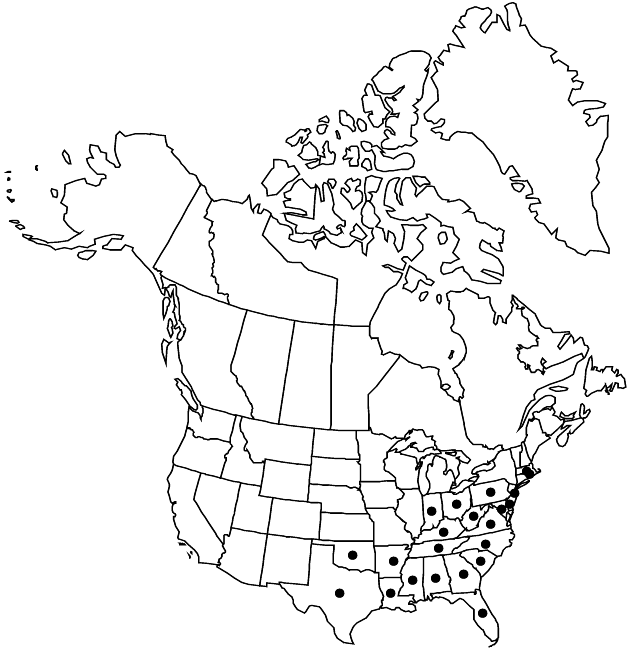Eupatorium rotundifolium var. rotundifolium
Endemic
Revision as of 20:54, 27 May 2020 by imported>Volume Importer
Leaf blades 3-nerved from bases, 20–43 × 13–35 mm, broadest near bases, bases broadly subtruncate to broadly cuneate, margins crenate. 2n = 20, 30.
Phenology: Flowering Jul–Aug.
Habitat: Moist, low ground, roadsides, margins of ponds, sandy soils
Elevation: 10–200+ m
Distribution

Ala., Ark., Del., Fla., Ga., Ind., Ky., La., Md., Mass., Miss., N.J., N.C., Ohio, Okla., Pa., R.I., S.C., Tenn., Tex., Va., W.Va.
Discussion
Variety rotundifolium includes both sexual diploids and apomictic polyploids, which are morphologically not distinguishable. The sexual diploids are somewhat more restricted geographically, occurring in a band across northern Florida and southern Georgia.
Selected References
None.
Lower Taxa
None.